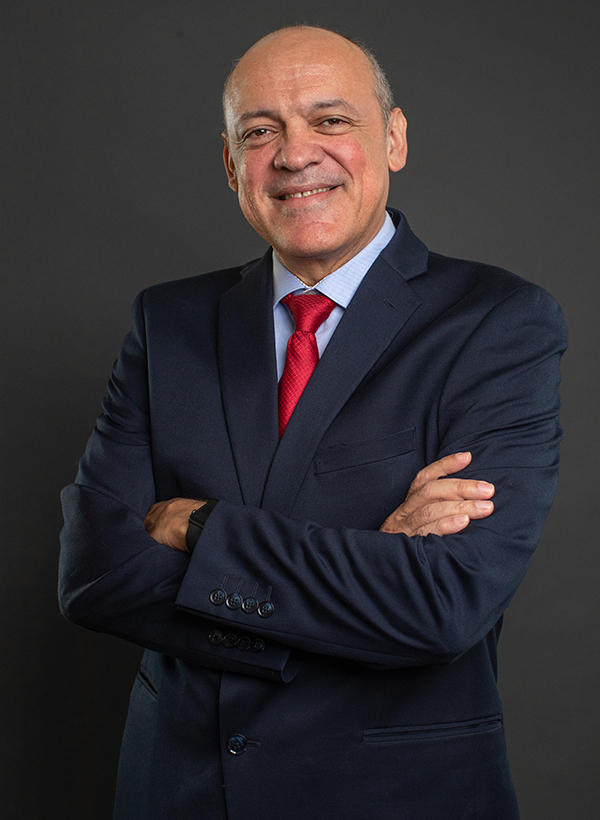Faculty
A NEW PERSPECTIVE
Bauer College Names Associate Dean for Graduate & Professional Programs
Leiser Silva, an associate professor in Bauer College’s Department of Decision & Information Sciences since 2002, was named associate dean for Graduate and Professional Programs this fall. Silva holds a Ph.D. in information systems from the London School of Economics and Political Science, a master’s in systems analysis and design from the same institution, and a bachelor’s in computer sciences from the Universidad del Valle in Guatemala.

LEISER SILVA HAS TAUGHT MANAGEMENT INFORMATION SYSTEMS COURSES AT BAUER COLLEGE SINCE 2002 AND PLANS TO FOCUS ON COURSE DELIVERY AND INNOVATION IN GRADUATE PROGRAMS.
Diversity not only helps us to be more tolerant and more open, but in business, it helps us solve problems better, as we can analyze a situation from different perspectives.
LEISER SILVA, ASSOCIATE DEAN,
GRADUATE & PROFESSIONAL PROGRAMS
Here, we chat with Silva about his plans for Bauer graduate programs.
Q: What is your perspective as you take on the role of overseeing Bauer’s graduate and professional programs? What are some differentiators that benefit students?
A: The main strength of our graduate programs is our faculty. These are distinguished academic scholars with unmatched published research on leading topics. Many of our faculty teach using a textbook that they wrote. They also occupy prominent positions on editorial boards of the most prestigious business scientific journals. They, in many ways, transmit to our students the knowledge they help to generate.
Our faculty is also constituted of people from industry; they have had leading roles especially in the oil and gas industry. They bring to our graduate programs a practitioner’s perspective that is invaluable for students. In many cases, they have had the positions and the careers that our students aspire to have.
This combination of research and practice is very unique and differentiates us from others. Unlike some of the other graduate business programs that operate in Houston, our faculty reside here and are available for our students other than in class time.
Another strong feature that differentiates us from other graduate programs is the diversity in both our faculty and our students; we are one of the most diverse business schools in the country. Diversity not only helps us to be more tolerant and more open, but in business, it helps us solve problems better, as we can analyze a situation from different perspectives.
Q: What are some challenges for graduate programs and how will you approach them?
A: It may seem that the biggest challenge is to continue attracting and enrolling talented students to our program. While that is a concern, I would say that the biggest challenge is the innovation and enhancement of students’ learning experience. This requires us to be innovative on how we deliver our courses and have a serious look into making them even more challenging and more aligned with what the business community values and requires from our MBAs.
One of my first initiatives has been the creation of a task force composed of many of our award-winning teachers. The charge of this task force is to produce a report on how we can enhance the student learning experience through innovation, both in the way we deliver our courses and in their content. The report will give us a legitimate and solid foundation, as well as a coherent framework for concrete initiatives aimed at enhancing the MBA learning experience.
Q: How might your background in information systems come to play in this position?
A: One aspect is in evaluating and applying emerging technologies. An important trend in higher education is to produce online courses and degrees. My information systems background can help me evaluate the technologies, so we can choose those that are valuable and productive. Most importantly, my background in information systems gives me a clear sense of the different steps that are required for the successful implementation of new information technologies.
Q: How do you see the core MIS courses you teach Bauer MBAs reflected in their work life?
A: Learning the fundamentals of managing IT infrastructure, Big Data, enterprise systems and information systems security is critical for any business student and even more for MBAs, because of the pervasiveness of IT across all business functions and processes.
Our MBAs benefit from understanding the bigger IT trends, challenges and best practices. The feedback I get from my students is very encouraging. Some have told me that after our course, they have been able to fruitfully participate in discussions in their companies, when for example, executives are deciding whether to move all their systems or not to the cloud. In the MBA MIS course we discuss the risks and benefits entailed by different cloud service models. After learning main concepts, we then apply them through case study analysis and discussions.
